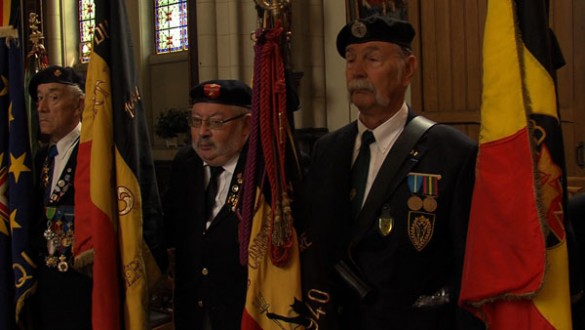Sven Augustijnen

Spectres de Sven Augustijnen
Travail de mémoire ou écriture de l’histoire ? Dans son film Spectres, Sven Augustijnen oscille entre ces deux missions. Cinquante ans après l’assassinat de Patrice Lumumba, cet artiste bruxellois revient au Congo pour explorer les traces laissées par cet événement traumatique. Il arpente l’ancienne colonie belge en compagnie de Jacques Brassinne de La Buissière, part avec lui à la rencontre des protagonistes de l’époque et de leurs parents, revient sur les lieux où ce héros national, assassiné avec l’assentiment du royaume colonisateur, a passé ses derniers instants, rencontre sa veuve et ses enfants. Les spectres évoqués, ce sont ceux des autorités de l’époque qui semblent, aujourd’hui encore, au pouvoir, mais également ceux des rêves de l’Indépendance. Regard accusateur porté sur son pays natal, mise à distance de la mémoire pour en faire une parabole de l’Histoire, alors que la parole semble encore bien vivante, voire activatrice : c’est autour de cette écriture paradoxale, entre tentative de réparation et mise en exergue de la culpabilité du peuple dominant, que se compose ce document, porté par la Passion selon Saint Jean de J. S. Bach. Des fantômes pour repenser le présent.
Spectres/Ghosts by Sven Augustijnen
Is this a work of memory or a writing of history? In his film Spectres/Ghosts, Sven Augustijnen wavers between these two briefs. Fifty years after the assassination of Patrice Lumumba, this Brussels-based artist returns to the Congo to explore the traces left by that traumatic event. He criss-crossed the former Belgian colony in the company of Jacques Brassinne de La Buissière, set out with him to meet the protagonists of that period and their relatives, returned to the places where this national hero, murdered with the agreement of the colonial power, spent his last moments, and met his widow and his children. The ghosts evoked are those of the authorities of the time who, even today, still seem to be in power—but they are also the ghosts of dreams of Independence. An accusing eye cast over the country where he was born, a distancing of memory in order to make of it a parable of History, when the word still seems live, not to say activating: it is around this paradoxical writing, somewhere between an attempt at making amends and a highlighting of the guilt of the ruling people, that this document is made, borne along by J.S. Bach’s St. John Passion. Ghosts for re-thinking the present.
- Partage : ,
- Du même auteur : Haris Epaminonda, Anri Sala, Pathétique télépathie : une ville assiégée par la musique, The Host and the Cloud, Pierre Huygue, Marie Voignier,
articles liés
Fabrice Hyber
par Philippe Szechter
Shio Kusaka
par Sarah Matia Pasqualetti
Julian Charrière : Espaces culturels
par Gabriela Anco


